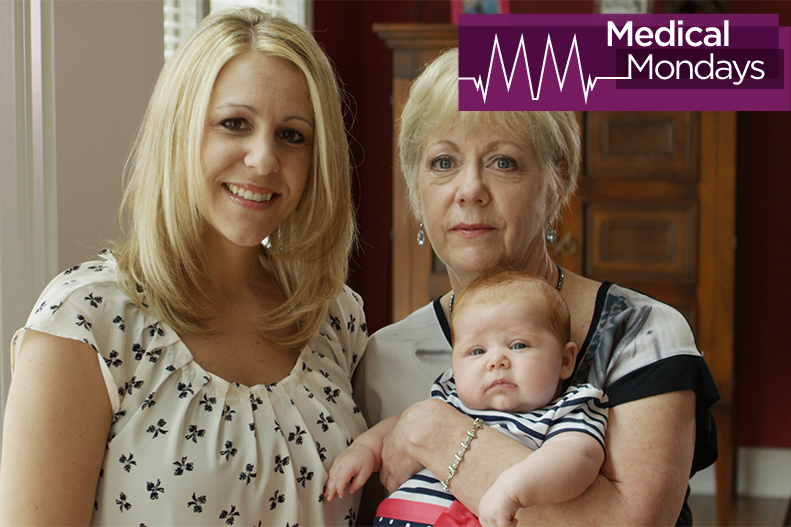Pregnancy is an exciting, but also scary time. You’re excited to meet your new bundle of joy but likely have more questions than you can count. Whether you’re a first-time mom or a veteran parent, this resource guide to obstetrics services can help you feel more at ease and enjoy the next nine months of pregnancy.
Here you’ll learn about:
- What to expect during each stage of pregnancy
- The signs of pregnancy complications
- How to stay comfortable during pregnancy
- The truth behind pregnancy and miscarriage myths
-
Signs and Symptoms of Possible Pregnancy Complications
Whether you’re a first-time mom-to-be or if you’ve already have children, every pregnancy is different. With so many emotions and nerves, it’s tough to know whether that pain you feel or light spotting you see is normal or a sign of something more serious. Pregnancy places a large strain on your body and sometimes complications can arise, although many are manageable. Read more to discover the symptoms of common complications and when you should visit your doctor.Learn More
-
Managing Gestational Diabetes
Only about seven percent of pregnant mother’s get gestational diabetes and there is not much you can do to prevent it. However, managing your diet and understanding your risk factors is essential to managing the most common pregnancy complication. Read more to discover how gestational diabetes is diagnosed, what complications can occur as a result, and ways to manage it during your pregnancy.Learn More
-
Staying Comfortable During Pregnancy
Pregnancy is a beautiful time, but there are some challenges you may face, too. Because your body is undergoing a variety of changes, the joys of pregnancy may be dampened by aches, pains, and other inconveniences of many kinds. Not everyone experiences this discomfort, but if you do, there are ways to find relief. Read more to discover tips for staying comfortable during your pregnancy.Learn More
-
How to Pack a Delivery Bag for Labor
Packing a delivery bag in the moment can be incredibly chaotic and makes it easy to forget something that may make your delivery more comfortable. Experts at Magee-Womens Hospital of UPMC suggest packing your bag a few months in advance. While a robe and slippers may be the items that come to mind first, there are a few additional pieces you may not even think to pack! Read more to discover some essential items to pack in your delivery bag.Learn More
-
Pregnancy: A 9-Month Journey
Pregnancy is an exciting, nine-month journey. If it is your first experience, you probably have more questions than you can count. How big is my baby? What are the signs of preterm labor? When should I look for a car seat? Read more to discover what to expect at each stage of your pregnancy and some helpful tips from the experts at Magee-Womens Hospital of UPMC.Learn More
-
Constipation During Pregnancy: Five Ways to Get Things Moving Again
During pregnancy, your body undergoes a variety of changes to accommodate your baby. Most expect some morning sickness and fatigue over those nine months, but irregular bowel movements and constipation are also a common complaint during pregnancy. Read more to discover the cause of the discomfort and what you can do to find relief.Learn More
-
Benefits of Vitamin D and Prenatal Vitamins for Pregnancy
More and more women are aware of the benefits of prenatal vitamins, but many expectant mothers overlook the benefits of vitamin D as a supplement during pregnancy. While the benefit of an excess amount of vitamin D is still not verified, the importance of sufficient vitamin D levels in pregnant women is known to promote healthy skeletal development in the fetus and bone health for the mother. Read more to discover how you can ensure adequate levels of Vitamin D during pregnancy.Learn More
-
The Truth About Miscarriages
According to national statistics, as many as one in five known pregnancies end in a miscarriage, defined as the spontaneous loss of a pregnancy before 20 weeks. That number is likely much higher, occurring in women who lose the fetus before ever realizing they were pregnant. Read more to discover the truth behind many common myths about miscarriage.Learn More








